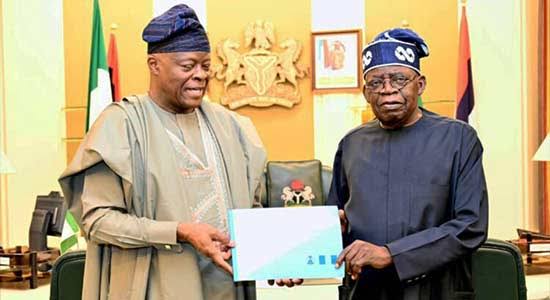In a significant development today, the Minister of Finance, Wale Edun, has officially presented a new minimum wage proposal to President Bola Tinubu. This landmark proposal suggests raising the minimum wage for workers to N105,000, as reported by the Western Post.
The proposal is part of the government’s ongoing efforts to address economic challenges and improve the standard of living for Nigerian workers. The new minimum wage template aims to provide a substantial increase from the current wage, reflecting the administration’s commitment to economic reforms and social welfare.
President Tinubu, known for his focus on economic development, is expected to review the proposal thoroughly. The increase to N105,000, if approved, would mark a significant step towards addressing inflation and the rising cost of living, which have been major concerns for many Nigerians.
This announcement has already generated considerable discussion among economic analysts, labor unions, and the general public. Labor unions have long advocated for an increase in the minimum wage, arguing that the current rate is insufficient to meet the basic needs of workers and their families.
Details of the proposal, including its implementation timeline and the potential economic impact, are anticipated to be disclosed following the President’s review. The proposal is expected to undergo scrutiny from various stakeholders to ensure that it balances the interests of workers and the broader economic implications.
The proposed N105,000 minimum wage represents a significant policy shift aimed at enhancing the livelihood of Nigerian workers and boosting domestic consumption. This move could also have far-reaching effects on the nation’s economic landscape, influencing everything from consumer spending to business operations and overall economic growth.
As the nation awaits further details and the President’s decision, the proposal by Minister Wale Edun stands as a potentially transformative policy initiative in Nigeria’s socio-economic framework.











